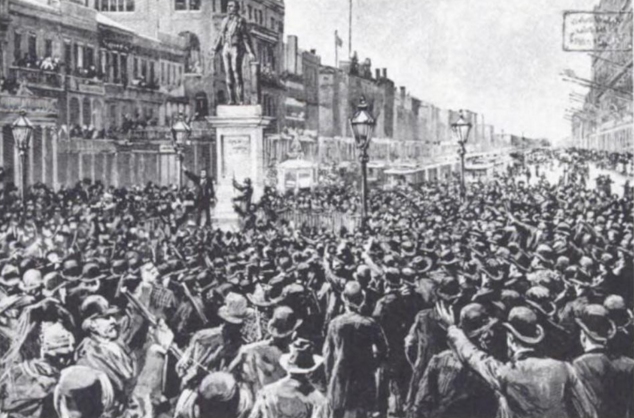116.
When he unlocked the door to his room, he
stumbled about in the dark, already sensing that he was not alone. As soon as
he found the lamp and turned it on, he saw Poe on the chair next to the bed,
caressing Circe in his lap. The man looked drunk and disheveled, his broad
square forehead gleaming with sweat. Mama
would have called this a bad omen. A drunken ghost with a black cat. Disaster looming.
"You know better, Paolo. Our presence is not an
omen."
"You can't be real. I'm suffering from a lack of sleep, that's all. I'm hallucinating."
"No, Paolo, you are not."
"But if you actually exist outside my own mind,
wouldn't that justify superstition?"
"Spirits exist, and souls persist," Poe jingled, slurring his words, "at best they rise as one, at worst they split
undone. There are laws of motion no scientist knows, as my book Eureka! surely
shows, but that doesn't mean anything goes."
"Give me an example of something delusional,
then. And stop rhyming, please, it’s very annoying."
"Malocchio. All that folklore about the evil eye. It's all rubbish, Paolo."
"Now let me get this straight. You can only find
me by following Circe. Why is that?"
"She is a soul-tracker. She leads me to you. She
and I exist in the same set of dimensions. You and I do not."
"How can I see you then?"
"You can't always. Only when the dimensions are angled
right, and then only when I have the energy."
"Now that's rubbish. I
need to unpack my bag and get to sleep. If you don't mind." Paolo began to unpack his valise, throwing
things into a chest of drawers until he got to his chemise and petticoat.
"Did you bring a wig? You will look ridiculous
without one."
"Don't look, then. I need this. Call it catharsis." He stripped, and as he slipped on the clothes
he saw Poe shake his head and turn away. Paolo extinguished the lamp and got
under the covers. I have to get up early,
so please, leave me alone. I've got to meet the dean in the morning, get my
lecture schedule. Then go with Regina to Mama's grave. Mama, buried in the New World.
What an irony. Even though she disguised me as a girl, which her father viewed
as a violation of the old way, she had been as Old World as a woman could get.
She did it to save my life. She was being a good mother. I would have perished,
there's no doubt of that. I just wish she hadn't turned on me. Be a girl, then don't be a girl. If I ever catch you being a girl
again I'll have your
grandfather make you black and blue. Regina says Mama was sorry she did that,
let him beat me up. Would she have apologized on her deathbed, if I'd made it here before she died? Or was she
already too far gone, all doped up and delirious?
"The spirits she saw are real, Paolo." Poe didn't sound drunk anymore. "The tortured blacks in the house. Poor things,
they're worse off than me. And to think I supported
the peculiar institution, when I was the body this phantasm now mimics."
"So now you're saying you're nothing more than a phantasm?"
"No, you numbskull. I'm a loose spirit; the image you see is the phantasm
I generate out of the little excess energy I have. Most of it goes into keeping
myself together, fighting off dissolution."
"Don't let me stop you from dissolving."
Paolo wrapped his head in the pillow and rolled
up fetally facing the wall. His penis stiffened under the satin petticoat, and
fighting off the haunt he conjured his latest fantasy-man—Henry James because he had all of Tomaso's physical bearing and none of his boorish
insensitivity—but before Paolo could get too involved in his
fantasy he drifted off to a hollow world of nameless dread. Poe's voice echoed from what seemed a cave.
You see how treacherous is the Land of Dreams,
the Real World. One second it is sweet, you're in paradise, a delightful sunny lea or a
lovely seaside strand; you blink and suddenly it's a dark and dismal tarn, you’re stranded on the
Night's Plutonian Shore . . . .
|

